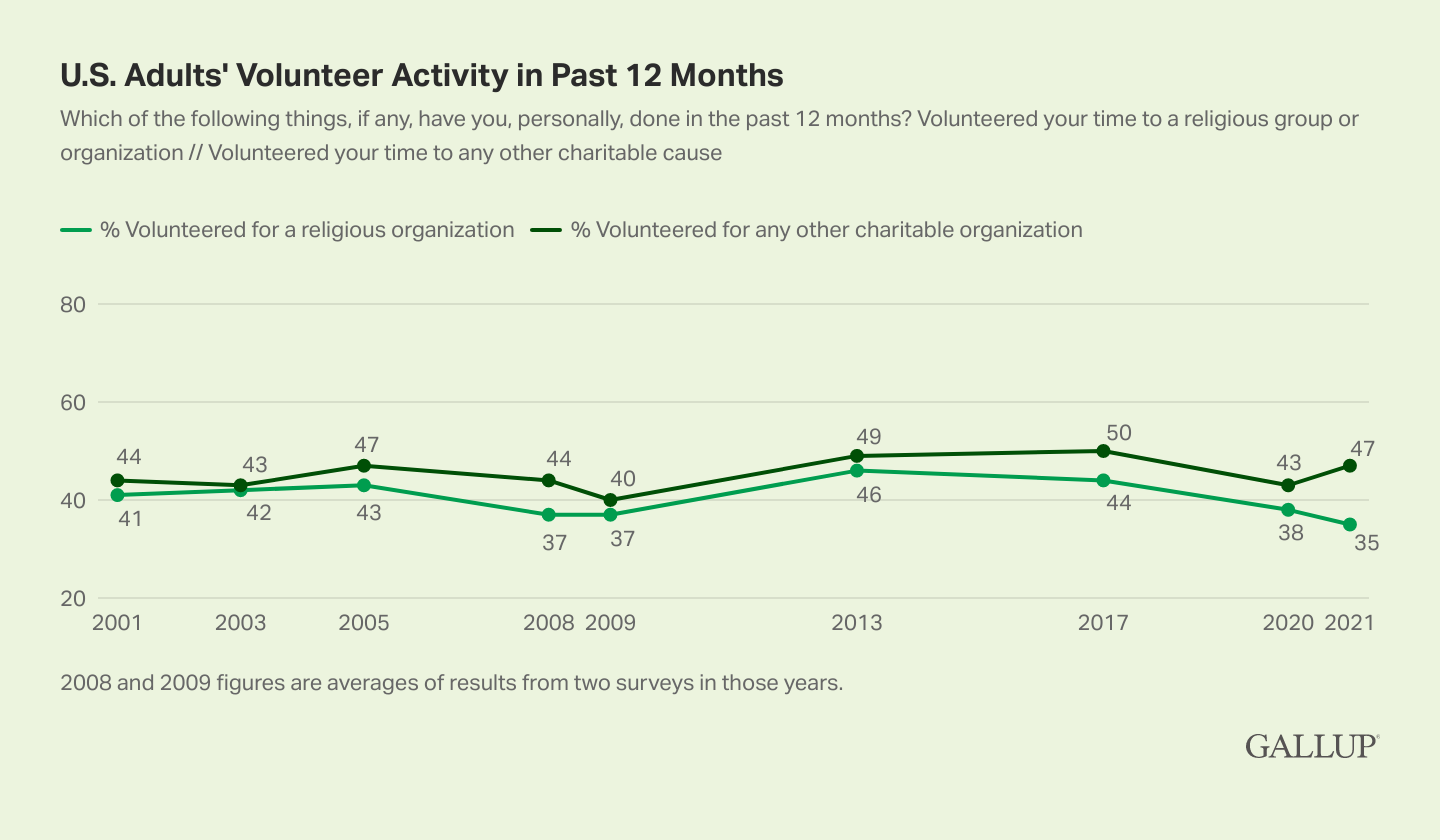Have you ever had trouble coordinating church volunteers?
If you’re like most people, you probably have. Church volunteer coordination isn’t easy. And that’s tough because organizing church volunteers is essential for creating a welcoming and effective ministry.
Volunteers play a key role in everything from greeting newcomers and helping with events to supporting youth programs and outreach efforts. However, coordinating a large team can be challenging without the right approach. Clear communication, defined roles, and a supportive environment are vital for keeping everyone engaged and motivated.
In this podcast, we’ll explore practical tips for improving volunteer coordination, ensuring that both the church’s needs and the volunteers’ time are respected.
Ready to learn more? Let’s jump in.
Estimated reading time: 11 minutes
Table of contents
Church Volunteer Management

First up, let’s tackle the issue of church volunteer management as a whole. In this section, we’ll go over everything you need to know. Then afterward, we’ll get into our 9 tips and tools to help you out.
Basics of Church Volunteer Management
Volunteer management is the process of organizing and supporting the church members who offer their time and talents to serve in various roles. For a local church, managing volunteers effectively begins with clear communication and defined roles.
Church leaders need to identify the areas where help is needed, such as Sunday services, youth programs, outreach events, and more. Volunteer recruitment is the first step, where church leaders encourage members to get involved and match their skills and interests to the right opportunities.
After recruitment, church volunteer scheduling becomes essential to ensure that tasks are covered and no one feels overwhelmed. This can be done through online scheduling tools, spreadsheets, or a simple rotation system.
Proper volunteer management helps ensure that every church member knows what is expected of them and can contribute in a meaningful way.
Why Church Volunteer Management is Important
Effective volunteer management is crucial for the smooth running of a local church. It allows church leaders to coordinate activities efficiently and make sure that all church members who volunteer feel valued.
By creating a structured process for volunteer recruitment and scheduling, churches can make better use of their resources and avoid burnout among volunteers. Well-managed volunteer programs create a stronger church community by giving members opportunities to connect and serve together. When people serve in roles that match their strengths, they tend to enjoy their work more and stay committed longer.
This positive experience can lead to a more vibrant and engaged congregation, where church members feel a sense of belonging and purpose. Good volunteer management also ensures that the church’s programs run smoothly, which enhances the overall experience for both volunteers and attendees.
Challenges in Managing Church Volunteers
While volunteer management is key to a thriving church community, it comes with its challenges. One common difficulty is balancing the schedules and availability of volunteers. Church volunteer scheduling can become complicated when trying to accommodate varying time commitments from different church members.
This can lead to last-minute gaps or overworked volunteers. Additionally, volunteer recruitment can be a challenge, especially in smaller churches or during seasons when people are busier with personal commitments.
It’s also possible for some volunteers to experience burnout if they take on too many responsibilities without enough support. Church leaders must find a way to manage church volunteers that respects their time while keeping them engaged.
Another challenge is ensuring consistent training and communication, so that every volunteer knows their role and can perform it confidently.
According to Gallup, 35% of Americans volunteered at their local church in 2021.

This number was peaking in the 40s in the 2010s but has been steadily dropping. Why? Well, it could be because of bad volunteer management and all of these challenges.
Addressing these challenges requires patience, flexibility, and ongoing attention to the needs of both the volunteers and the church.
9 Tips and Tools for Church Volunteer Coordination

And that’s everything you need to know about church volunteer management! Now, let’s get into our list of the top 9 tips and tools to help you out. Like we just looked at, managing volunteers is far from easy. Thankfully, this list of church volunteer management tips should help you overcome all of those challenges so your church can have an effective volunteer system.
Let’s get into it.
church’s volunteer program
1. Create Clear Roles
Creating clear roles is essential when you recruit volunteers for your church. Each role should have a simple description that outlines the responsibilities, time commitment, and skills needed.
For example, a greeter might welcome guests, while a youth mentor would help lead activities for teens. When volunteers know exactly what is expected of them, it reduces confusion and makes them feel more confident in their service.
It also helps church leaders match the right person to the right role, making the volunteer experience more fulfilling.
Clear roles can also attract new volunteers, as they understand the opportunities available and can choose a role that suits their interests and abilities. This leads to a smoother, more effective volunteer team.
2. Use Church Volunteer Management Software
Using church volunteer management software can make coordinating volunteers much easier. These tools help church leaders keep track of volunteer hours, schedules, and contact information in one central place.
Consider using software like:
These allow volunteers to see available shifts and sign up online. It also sends automatic reminders, which can reduce no-shows and last-minute confusion. Tracking volunteer hours through software is especially helpful for recognizing those who have given extra time or for planning future events.
By simplifying the scheduling process, this software saves time for both church leaders and volunteers. It ensures that everyone knows their responsibilities and helps create a smoother, more organized volunteer program for the church community.
3. Send Weekly Updates
Sending weekly updates is an important part of managing a church’s volunteer program. These updates keep everyone informed about upcoming events, changes in schedules, and new opportunities to serve.
Using email or messaging apps, church leaders can send reminders about volunteer shifts or share important announcements. Regular updates help volunteers stay connected to the church’s activities and feel more engaged in their roles. It also ensures that no one misses important information, like last-minute schedule changes or training sessions.
Keeping communication open through weekly updates makes the church’s volunteer program more efficient and helps create a sense of community among volunteers. It’s a simple way to show appreciation and keep everyone on the same page.
4. Use a Shared Calendar
Using a shared calendar is a great way to keep your church’s volunteer program organized. It allows everyone to see what’s happening and when they’re needed. Here’s how a shared calendar can help:
- Transparency: Volunteers can easily see their assigned shifts and know who else is serving with them.
- Accessibility: Platforms like Google Calendar let everyone access the schedule from their phones or computers.
- Updates: Church leaders can make changes to the calendar, like adding events or updating times, and volunteers will see the updates immediately.
- Reminders: Many shared calendar apps send automatic reminders, helping to reduce no-shows.
A shared calendar makes it easier to keep everyone on the same page and ensures smooth coordination.
5. Develop a Volunteer Handbook

Developing a volunteer handbook is a valuable tool for any church’s volunteer program. This handbook serves as a guide for new and existing volunteers, providing clear information about expectations, guidelines, and church policies.
It can include important details such as dress codes, safety procedures, communication guidelines, and descriptions of different volunteer roles. By offering a handbook, church leaders ensure that all volunteers have access to the same information, making it easier for them to understand their responsibilities. It also helps new volunteers feel more comfortable and confident as they begin serving.
A well-prepared handbook can be a great reference point for answering common questions, making the volunteer experience smoother and more enjoyable for everyone involved in the church community.
6. Create a Volunteer Facebook Group
Creating a volunteer Facebook group can be an effective way to improve communication and build a sense of community among your church’s volunteers.
A private group provides a space where church leaders can share updates, reminders, and upcoming events directly with volunteers. It allows members to ask questions, share ideas, and even swap shifts when needed. The informal setting of a Facebook group helps create a more personal connection, making it easier for volunteers to feel engaged and appreciated.
It’s also a great platform for recognizing volunteers’ efforts by highlighting their contributions. By using a Facebook group, church leaders can maintain regular contact with volunteers, ensure everyone is informed, and strengthen the bonds within the church’s volunteer program.
7. Establish a Point Person
Establishing a point person for your church’s volunteer program is crucial for smooth coordination. This individual serves as the main contact for volunteers, making it easier for everyone to know who to reach out to with questions or concerns.
Here are a few benefits of having a point person:
- Clear Communication: Volunteers have a specific person to contact, which reduces confusion and ensures they receive accurate information.
- Support: The point person can provide assistance, guidance, and encouragement to volunteers, helping them feel valued and supported.
- Organization: Having one person in charge helps streamline scheduling and manage volunteer tasks more effectively.
- Feedback: The point person can gather input from volunteers, making it easier to improve the volunteer experience in the church community.
This role helps create a more connected and organized volunteer program.
8. Rotate Volunteer Roles
Rotating volunteer roles is a smart strategy for keeping your church’s volunteer program fresh and engaging. When volunteers switch roles, they can experience different aspects of church life and discover new skills. This helps prevent burnout, as individuals won’t feel stuck in the same position for too long.
It also encourages teamwork, as volunteers learn to work with different people and understand various tasks. By providing opportunities for everyone to try new roles, church leaders can keep volunteers excited about their contributions. This rotation can also attract new volunteers, as it shows that the church values diverse experiences.
Overall, rotating volunteer roles strengthens the church community and fosters a sense of growth among its members.
9. Recognize and Appreciate Volunteers
Recognizing and appreciating volunteers is essential for building a strong church community. When church leaders take the time to acknowledge the hard work of volunteers, it makes them feel valued and motivated to continue serving.
Simple gestures, like saying thank you in person, sending a heartfelt note, or highlighting volunteers during church services, can go a long way. Hosting appreciation events, such as potlucks or special gatherings, also allows everyone to celebrate the contributions of volunteers together.
When church members see that their efforts are recognized, they are more likely to stay engaged and committed. By fostering a culture of appreciation, church leaders create a positive environment that encourages more people to join the volunteer program.
Managing Church Volunteers

In conclusion, effective church volunteer management is vital for creating a vibrant and engaged church community. By implementing strategies such as creating clear roles, utilizing volunteer management software, and sending regular updates, church leaders can ensure that volunteers feel informed and valued.
Establishing a point person, developing a volunteer handbook, and rotating roles can help foster a sense of connection and prevent burnout among volunteers. Recognizing and appreciating the contributions of church members is equally important, as it strengthens commitment and encourages continued participation in the church’s volunteer program.
Together, these practices enhance the overall experience for both volunteers and the church community, leading to a more organized and fulfilling environment for service.
As churches strive to fulfill their mission, investing time and resources in effective volunteer coordination will ultimately lead to stronger relationships, greater impact, and a lasting sense of belonging among all members.
Do you have any other tips for managing church volunteers? Let us know in the comments below!
More Resources on Church Volunteers





